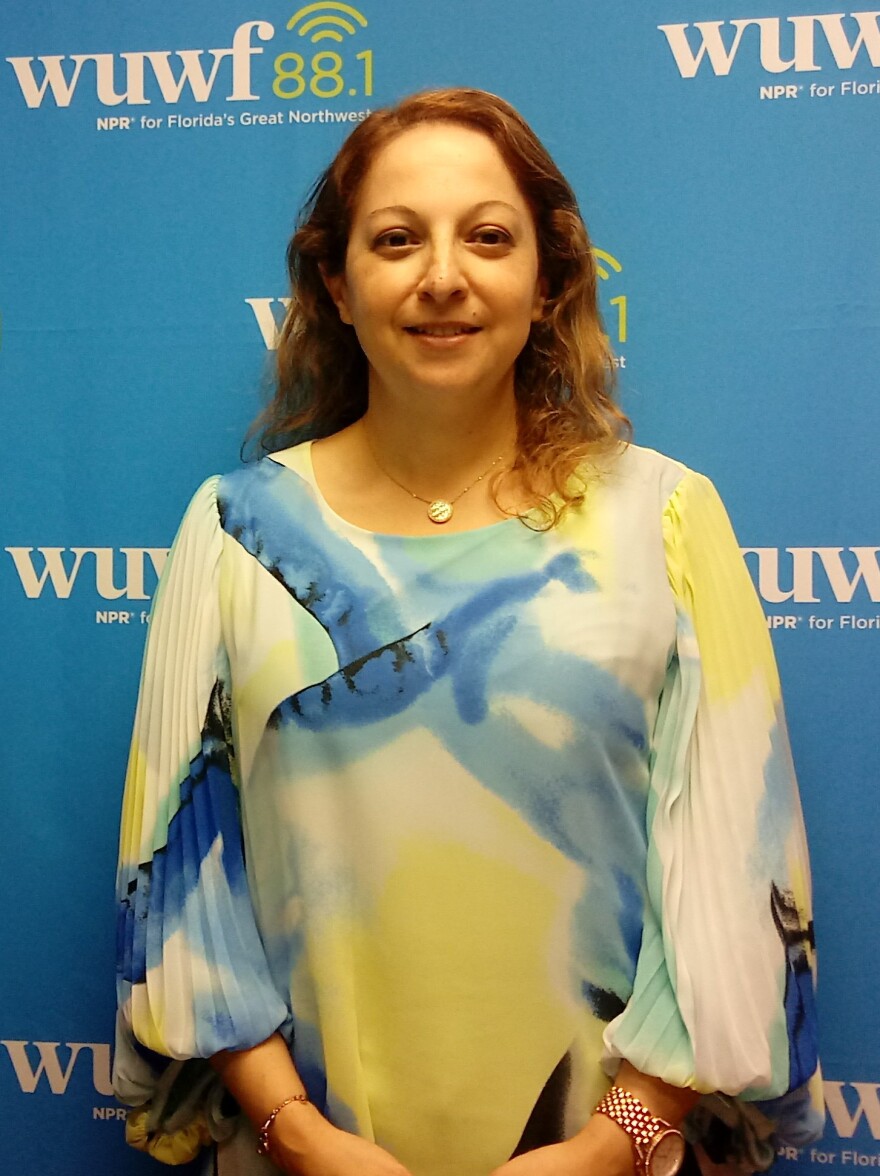As part of getting ready for the 2018 election cycle, election officials in Florida have received training from the University of West Florida’s Center for Cybersecurity. WUWF’s Dave Dunwoody reports.
The Center taught the courses in Tallahassee, Miami, Orlando and St. Augustine last month.
“[An election] is an ongoing target; it’s a very fast-moving field. Every breach that occurs, every new threat that comes up, has a little bit of a different twist to it,” says Eman El-Sheikh, Director of the UWF Center for Cybersecurity.
One of its missions is building a culture of cybersecurity throughout Florida. One goal to that end involves building partnerships.
“We have partnered with the Florida Agency for State Technology earlier this year, to offer some training to state agency personnel,” said El-Sheikh. “One of our sessions involved working with state elections officials and we talked about doing more in-depth training for election supervisors, and [information technology] personnel involved in elections across the state.”
The training was based on guidelines and practices from the Department of Homeland Security. The focus was on foundational topics that everybody needs to know, says El-Sheikh, along with risk management, policy and dealing with such attacks.
“Understanding what threats are, what type of vulnerabilities exist, what they would look like to a person using their computer,” El-Sheikh said. “And what they would do if they see that.”
And the training is not “one and done.” One of the Center’s partners is the firm Metova CyberCENTS for the task of setting up the “Florida CyberRange.”

“We’ve showed them phishing scams; ransomware, [and] malware attacks,” said El-Sheikh. “We could actually not just talk about them, we can show them what it would look like to them as an end-user, and what they could do to try to prevent that from affecting their systems.”
“It’s something that was a [sic] area of increased focus for election officials, not only in the State of Florida but across the country,” says Escambia County Elections Supervisor David Stafford, who also Co-Chairs the National Association of Election Officials.
While the courses last month dealt with the latest threats, Stafford says cybersecurity is not exactly a new issue.
“We’ve had presentations, and my staff and I have had some additional training prior to this,” Stafford said. “Some of the challenges are out there and some of the ways to mitigate some of those with some work on the cyber-range, which was pretty fascinating.”
Homeland Security report digital systems in 21 states leading up to the 2016 election were targeted by Russia-aligned hackers -- who in a small number of cases broke into databases. But Paul Lux – Okaloosa County’s elections chief – says no voting equipment was compromised and there was no tampering with vote tallies.
“Mainly it stems from the various reported phishing attempts, et cetera,” Lux says. “What we’ve done by partnering with the University of West Florida Cybersecurity group is created a curriculum to better educate on a slightly more in-depth level.”
Among the lessons brought back to his office was how to react when you realize you’re in one of those situations. Lux says it wasn’t long before they had to put some of that knowledge to work.
“Less than three days after we came back from that class, we had an incident involving one of our computers, and we were ready to spring into action,” said Lux. ”The county’s prevention software actually stopped it, but it was just a good, first drill for a real-life scenario.”
In a letter to Florida Sec. of State Ken Detzner, U.S. Senators Bill Nelson and Marco Rubio urged supervisors to take advantage of help from the Department of Homeland Security to beef up the systems. Escambia’s David Stafford is hoping that the check is in the mail.
“Almost $400 million that was appropriated in the last spending bill, that was to flow down to [the] states,” Stafford said. “Florida has moved pretty rapidly to draw on their resources and make that available, hopefully soon, to those of us at the local level to be able to enhance our security presence.”
Some states initially were suspicious of Homeland Security’s efforts, fearing a federal takeover of elections that historically are conducted at the state and local levels. Florida does have one, un-hackable old-school advantage says Okaloosa County’s Paul Lux.
“In Florida, with the exception of voters with disabilities that use the touch screen devices, all voting is by paper ballot through the year 2020,” said Lux. “By then everyone – even the [Americans with Disabilities Act] accessible equipment will be required to generate a paper ballot.”
The physical security of Florida’s tabulation systems is such, says Lux, that they’re never connected to the outside world.
More information about the UWF Center for Cybersecurity and its various programs can be found at www.uwf.edu/cybersecurity.

